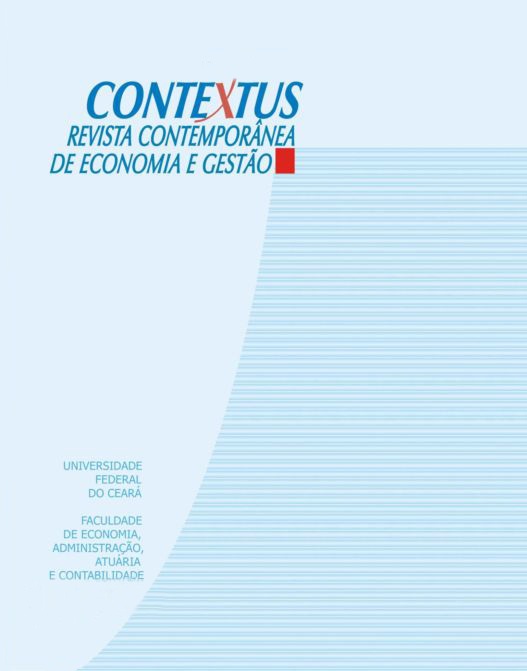CARACTERÍSTICAS DO DISCLOSURE AMBIENTAL DE EMPRESAS BRASILEIRAS POTENCIALMENTE POLUIDORAS: ANÁLISE DAS DEMONSTRAÇÕES FINANCEIRAS E DOS RELATÓRIOS DE SUSTENTABILIDADE DO PERÍODO DE 2005 A 2007
DOI:
https://doi.org/10.19094/contextus.v7i1.32101Keywords:
Evidenciação Voluntária. Meio Ambiente. Características. Análise de Conteúdo. Empresas Potencialmente Poluidoras.Abstract
Este artigo objetiva identificar as características do disclosurevoluntário ambiental de empresas brasileiras. Para tanto,analisaram-se as Demonstrações Financeiras Padronizadas(DFPs) e os Relatórios de Sustentabilidade (RS) de 2005 a2007 de empresas abertas com ações listadas na Bolsa deValores de São Paulo (BOVESPA), pertencentes a setores dealto impacto ambiental. As características analisadas, com basena análise de conteúdo, compreendem a classificação deevidência, o tipo de notícia, a referência temporal e a localizaçãoda informação. Os resultados demonstram que nos trêsanos, as 57 empresas da amostra evidenciaram 6.182 sentençasambientais, sendo 73% divulgadas nos RS e 27% nasDFPs. Enfatiza-se que a maior parte da evidenciação édeclarativa, do tipo positiva e com referência temporal nãoespecificada. Conclui-se que a pesquisa corrobora a Teoria daDivulgação Voluntária, uma vez que as empresas divulgaramvoluntariamente poucas informações negativas a respeito desuas práticas ambientais.Downloads
Published
How to Cite
Issue
Section
License
The authors, while doing the submission, accept the notice below:
We authors hold the copyright related to our paper and transfer Contextus journal the right for the first publication with a Creative Commons’ international license of the modality Attribution – Non-commercial 4.0, which in turn allows the paper to be shared providing that both the authorship and the journal’s right for initial release are acknowledged.
Furthermore, we are aware of our permission to take part in additional contracts independently for non-exclusive distribution of the version of our work published in this journal (e.g. publishing it in an institutional repository or as a book chapter), while acknowledging both the authorship and the journal’s initial publication.
We also certify that the paper is original and up to this date has not been released in any other journal, Brazilian or of another nationality, either in Portuguese or another language, as well as it has not been sent for simultaneous publication in other journals.
Last, we not only know that plagiarism is not tolerated by Contextus but also certify the paper presents the sources of passages from cited works, including those authored by ourselves.









3.png)


1.jpg)



1.jpg)


1.jpg)






.jpg)



1.jpg)

1.jpg)


1.jpg)

1.jpg)
1.jpg)
2.png)




1.jpg)
2.jpg)

1.jpg)





1.jpg)


1.jpg)
1.jpg)
